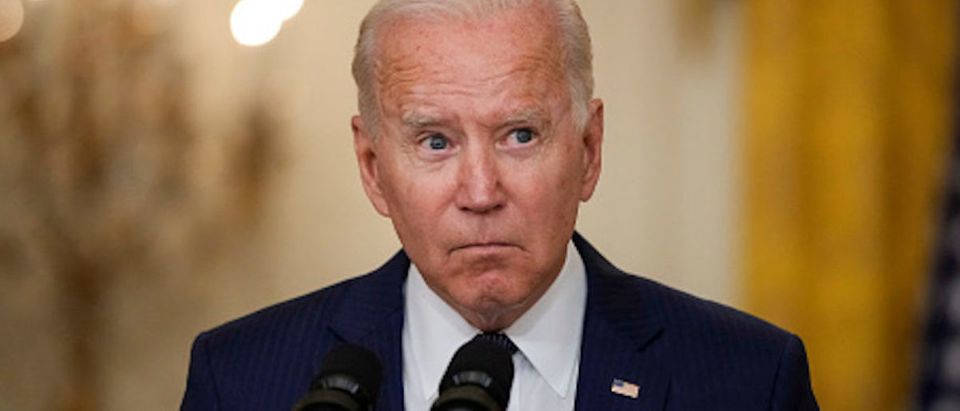“Racing the clock” is no way to end a 20-year war or enact a massive $3.5 trillion human and climate infrastructure bill, the most expansive and sweeping domestic-policy agenda since Lyndon Johnson’s presidency.
President Biden’s determination to end the Afghanistan war following a pre-announced timetable proved disastrous. Warfare 101 instructs that you never alert your enemy in advance precisely when you plan to disengage.
With Biden’s Aug. 31 deadline, the Taliban quietly planned their inevitable takeover, consolidating power in regional centers around the country while watching the clock tick.
Abandoning Bagram airbase in the middle of the night and, reportedly, without alerting our NATO allies, was the morale buster that collapsed the Afghan army. Biden has systematically and serially blamed everyone for this disaster but himself.
Now, seeking a domestic-policy palate cleanser to divert attention from his international mistakes, Biden wants to focus on stopping the COVID-19 delta variant and the “free” benefits he expects to convey through his $3.5 trillion blowout for free community college, expanded Medicare coverage, pre-K for all, climate change, etc.
Biden and his congressional allies, House Speaker Nancy Pelosi and Senate Majority Leader Chuck Schumer, have set deadlines for advancing this legislation in September. Pelosi promises a Sept. 27 vote on the $1.5 trillion physical infrastructure bill and, simultaneously or shortly thereafter, passage of the $3.5 trillion (at a minimum) human and climate infrastructure package.
Thoughtful moderates like Democratic West Virginia Sen. Joe Manchin and Democratic Arizona Sen. Kyrsten Sinema question the legislation’s total cost and how it will be funded. Manchin wants a “strategic pause” to assess the legislation’s economic impact given its massive spending and potentially adverse national-debt impact.
Democratic Florida Rep. Stephanie Murphy has signaled she’s uncomfortable with the rushed process and worried about the cost. Pelosi can afford to lose only three House votes; now she may be down to just two.
Here’s the Democratic game plan: they know their slim Congressional majorities may vanish in the 2022 midterm elections. To placate the party’s impatient progressive wing, Democratic leaders must move fast (“and break things,” as Zuckerberg might say?) while they have the votes.
Former Trump economic adviser Larry Kudlow envisions a 10,000-page massive legislative proposal. With fewer than 18 legislative days left on the House calendar and 28 days in the Senate, members will never be able to read or comprehend this massive legislation.
If and when these transformational, progressive proposals become law, we can then expect to see the Biden White House promptly pivot to the center so that the president can, once again, present himself, as he did in his 2020 presidential campaign, as a moderate centrist.
Presidents face blowbacks when they vastly overestimate their domestic policy mandates. Bill Clinton and Barack Obama saw significant midterm Congressional losses after their efforts on health care reform. Clinton was elected as a plurality president with 43% of the popular vote. Obama, at least, was the first Democrat to be elected president since Carter with a popular-vote majority. His Obamacare bill passed without GOP support.
While Biden won a clear popular vote 2020 victory over Donald Trump, he had zero coattails: Democrats lost House seats and retained power with a razor-thin majority; the Senate is tied 50-50. Biden’s only real mandate was not to behave like Donald Trump and to restore America as a reliable global power. He accomplished the former by just waking up each morning and has failed at the latter in only eight months.
LBJ crushed Republican Barry Goldwater and enjoyed large majorities in both congressional chambers. Johnson had a mandate for change, and he pushed it hard until his “guns and butter” spending plus escalating Vietnam War casualties drastically undermined his popularity. He declined to stand for re-election in 1968.
On January 20, 2021, President Biden pledged to unify the country. If enacted, his pricey domestic policies will take months to implement. The time for him to govern as a moderate centrist is now, not 2022.
If Biden continues to embrace his party’s extreme left wing, he’ll forsake party and national unity and have little time to embrace the political center. He can espouse regular, Congressional order in terms of how the Congress handles his proposals today, or he can face political disorder in the months between now and November 2022.
Why the rush? If these ideas are so good and so desired by Americans, then why not make them the 2022 midterm election’s platform?
Democrats should heed Joe Manchin.
Charles Kolb served as Deputy Assistant to the President for Domestic Policy from 1990-1992 in the George H.W. Bush White House


